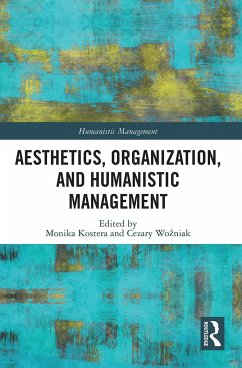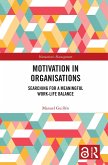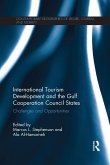This book is a reaction to the reductionist and exploitative ideas dominating the mainstream contemporary management discourse and practice, and an attempt to broaden the horizons of possibility for both managers and organization scholars. It brings together the scholarly fields of humanistic management and organizational aesthetics, where the former brings in the unshakeable focus on the human condition and concern for dignity, emancipation, and the common good, while the latter promotes reflection, openness, and appreciation for irreducible complexity of existence. It is a journey towards wholeness undertaken by a collective of management and organization theorists, philosophers, artists, and art curators.
Reading this book's contributions can help both academics and practitioners work towards building organizational practices aimed at (re)acquiring wholeness by developing aesthetic awareness allowing for more profound understandings of performativity, insights into the dynamics of power, appreciation of ambiguity and ambivalence, and a much needed grasp of complexity. The varied ways of engaging with art explored by the authors promote imaginative insights into and reflection on the beauty and vicissitudes of organizing, of management knowledge and collective expression.
It will be of interest to researchers, academics, practitioners, and students in the fields of organizational theory and practice, business and management history, human resource management, and culture management.
Reading this book's contributions can help both academics and practitioners work towards building organizational practices aimed at (re)acquiring wholeness by developing aesthetic awareness allowing for more profound understandings of performativity, insights into the dynamics of power, appreciation of ambiguity and ambivalence, and a much needed grasp of complexity. The varied ways of engaging with art explored by the authors promote imaginative insights into and reflection on the beauty and vicissitudes of organizing, of management knowledge and collective expression.
It will be of interest to researchers, academics, practitioners, and students in the fields of organizational theory and practice, business and management history, human resource management, and culture management.








